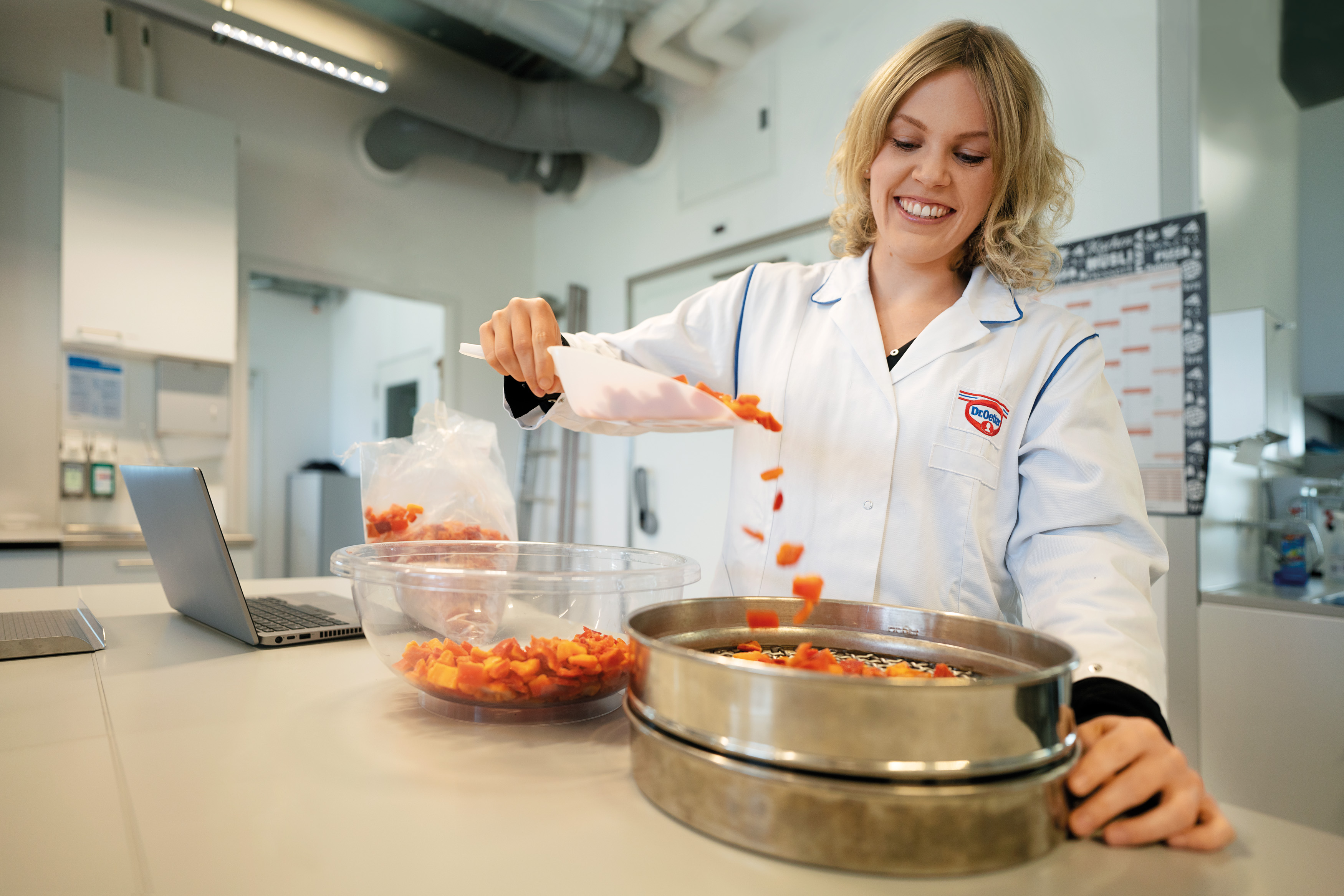Dr. Oetker Stories
We save food
At Dr. Oetker, we treat food with care and respect. We are constantly working on minimizing food waste in our production sites and warehouses – and inspire our consumers to do the same at home.

12.1.2024 • Sustainability
Food is our passion, so we are committed to fighting food waste. Around 1.3 billion tons of food get thrown away every year. Food is often produced under difficult conditions and with valuable resources; many people in the world still need better access to food. To reduce this imbalance and out of respect for nature and the people involved, we are committed to the responsible use of food – and thus also to greater climate protection.
Looking at us: less food waste in our production
We believe that if you want to minimize food waste, you have to look at yourself first: As part of our Dr. Oetker Sustainability Charter, we have determined to reduce the food waste generated in our warehouses and production sites by 25% by 2025. Numerous measures in our plants worldwide are contributing to this goal.
Donate food to social institutions
Despite careful planning, we sometimes produce too much of a product. However, we do not throw these away: we donate the food to various initiatives around the world in the markets in which Dr. Oetker operates.
Further information on our social projects
Together we are even stronger
When developing recipes for our consumers, we always make sure to use all of the food, offer seasonal ideas and provide tips and tricks for utilising leftovers in a delicious way. In future, we will work on communicating even more clearly and transparently that the best-before date is merely a guide and that many products can be consumed beyond this date
“Recipes without leftovers, with seasonal ingredients - we have long paid attention to this when developing recipes in the Dr. Oetker test kitchen. We are also happy to provide our consumers with tips for the perfect utilisation of food." Silja Meyer, Lead Manager test kitchen / content
“I'm a big fan of "look, smell, taste". So don't throw everything away just because the best-before date has expired." Dr. Judith Güthoff, SEM Sustainability & ESG
The good news: The majority of people in Germany is very conscious of food and avoids unnecessary food waste. This is one of the findings of a representative Dr. Oetker Study on the topic of "Food Waste", which was conducted by the market research institute YouGov Germany GmbH on behalf of Dr. Oetker with 2,027 respondents.
Low food waste at retailers and suppliers
Dry goods and frozen products usually have long remaining shelf lives. As a result, there is very little food waste between retailers and Dr. Oetker in an industry comparison. Returns to our suppliers occur, for example, when the raw material is not the right size for processing by our machines, such as pieces of bell pepper. According to our suppliers, the few returns that we cause in this way are mostly processed into other food products. Food waste is well below 1% of all raw materials delivered; much of it can even be recycled into animal feed and biogas.
Fighting food waste together
Fortunately, we are not combating food waste alone. Numerous organizations around the world are committed to this topic. Step by step, we are creating a framework for more careful handling of food as a valuable resource - from the field to production to the supermarket, whether at home or in gastronomy.
Some examples:
For more information please contact:
Katharina Ahnepohl
Media Spokesperson Sustainability